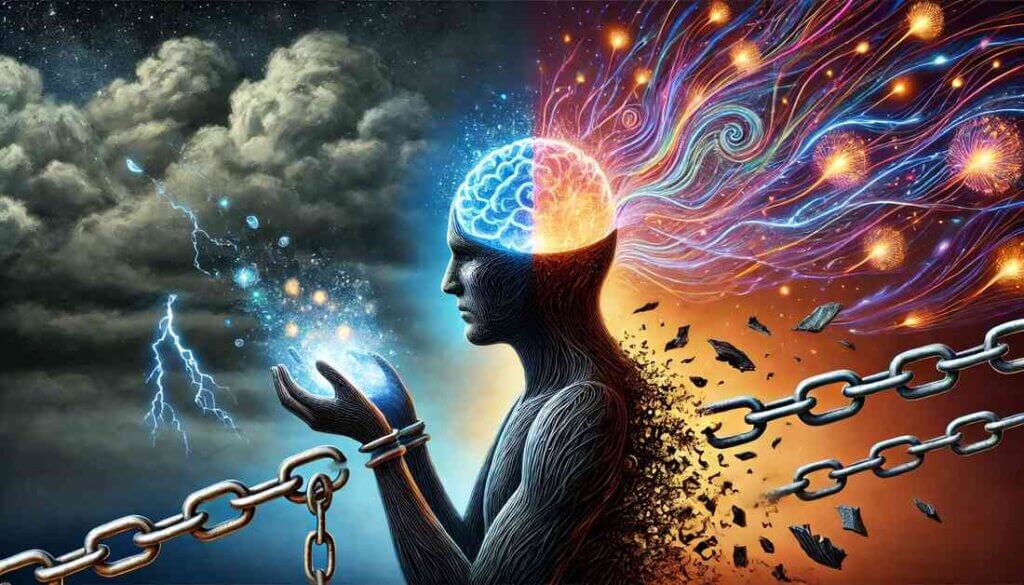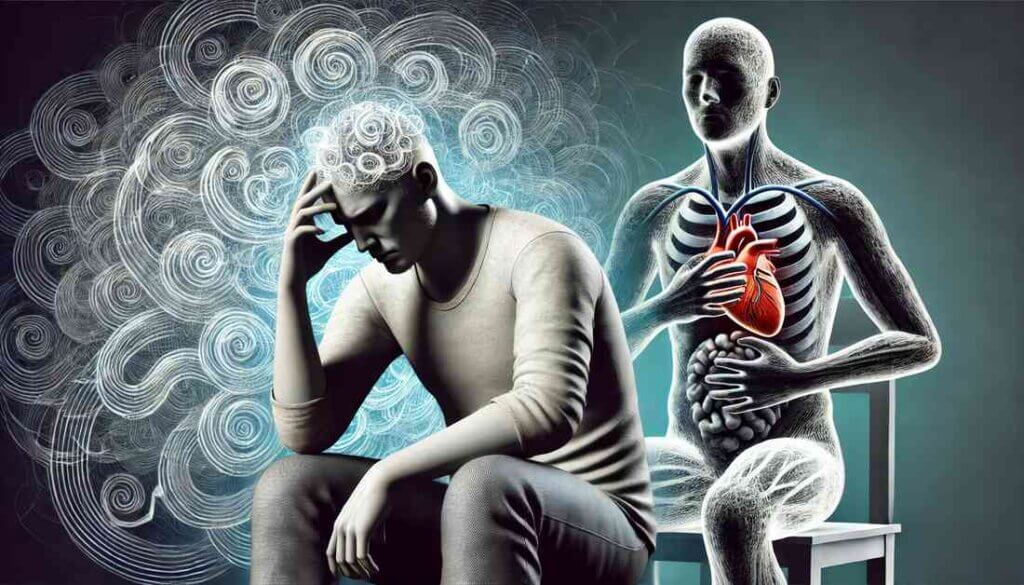Many people in the U.S. end their first marriage in divorce.1 And that people who have been divorced are 20% more likely to get long-term illnesses like diabetes and heart disease?2
Researchers have also found that divorce has a big effect on mental health, often making people more likely to experience sadness, anxiety, and even drug abuse. This post shows you 7 secret effects of divorce on mental health. These effects may change how you think about the real cost of separation.
Increased depression, stress, and anxiety

Divorce can make people feel a lot of different emotions.It’s one of the most stressful things that many people go through in their lives. As it turns out, people who are divorced are twice as likely to be depressed as people who are married3.
People also often feel anxious when they have to deal with changes in their finances, worries about kid custody, and being alone.
Imagine getting used to living without someone you thought would always be there. Worries about money can make things worse, especially if one partner depends on the other. It’s normal to feel overwhelmed when your daily tasks and life goals change all of a sudden. But recognizing these feelings can help you start to heal.
More likely to need psychiatric care

People can have mental health crises after getting divorced. A study found that people who are newly split are 50% more likely to need psychiatric care for problems like depression4. This isn’t just a short process. Divorce can really hurt your sense of who you are and your worth.
It’s more likely that you will need professional help when your life feels insecure. The worry of a divorce can make someone feel worse if they were already feeling a little depressed or anxious. You should be aware of this and get help when you need it. One of the best ways to deal with these thoughts is to talk to a therapist.
Who initiated the divorce has an effect on mental health

How you feel about the breakup can change based on who asked for it. Researchers have found that people who start the divorce process are 20% less emotionally upset than people who don’t5. It makes sense because the person who leaves has given it a lot of thought for a long time.
It’s like planning to quit a job you don’t like instead of being fired out of the blue. You are probably ready for the changes if you are the one making the choice. If you’re the one who gets left behind, though, you might feel shocked and unprepared. This is why being able to make the choice can help ease some of the mental stress.
Mental health and divorce: a connection that works both ways

It’s possible for mental health problems to cause divorce, but they can also happen during divorce. For instance, people who are depressed are 25–30% more likely to get divorced6. You can go either way on this street. It can be bad for a marriage when one partner has mental health problems.
People who don’t get treatment for their mental health problems sometimes find it hard to talk or connect with others. Putting stress on the marriage can make it more likely that the couple will split up.
But the stress of a breakup can make problems worse that were already there. If one partner is depressed, the breakup could make them feel even worse. This is why it’s so important to deal with mental health problems right away.
Problems with your physical health because of mental stress

Divorce changes more than just your mind. It can also hurt your body. People who are divorced are 20% more likely to get long-term illnesses like diabetes or heart disease7. Stress that lasts for a long time has strange effects on the body.
Your body makes chemicals like cortisol when you’re stressed. Too much cortisol can be bad for your health in the long run.
It might be harder for people going through a breakup to stick to healthy habits. They might be too stressed to eat well, work out, or sleep enough. This could make them more likely to get major health problems. Even small things, like going for a walk, can help protect your health when things are tough.
A greater chance of abusing drugs

Divorce can make people use dangerous ways to deal with their problems, like abusing drugs. Research has shown that people who are divorced are twice as likely as people who are married to abuse alcohol8.
It may feel good to drink or do drugs to escape, but they usually make things worse. They might make you feel more lonely, sad, or anxious.
There’s nothing better than a drink when you’re sad. But using drugs can make it harder to get over your feelings and lead to addiction. Instead, think about doing something healthy, like working out or talking to a friend. It can make a huge difference to find healthy ways to deal with your feelings.
Getting divorced can make it hard to sleep.

Divorce can make it very hard to sleep. It’s 30% more likely for people who are divorced to have sleep problems like insomnia9. Stress and fear can make it hard to sleep. You may have a lot of thoughts about the future, money, and family while you’re going through a divorce.
Not getting enough sleep can change your mood, make you tired, and make it harder to deal with worry. Being around it can make you more tense and angry. Getting into good sleep habits, like going to bed at the same time every night, can help. Some other things that can help you sleep better are meditation and relaxation routines before bed.
Strategies for coping and help for mental health

It’s common to feel like your feelings are going up and down a lot during a breakup. Here are five things that can help you deal with things and get better:
Meditation and Mindfulness
Meditation can help you feel less stressed and calm. Mindfulness techniques have been shown to cut anxiety by up to 60%10. Apps like Headspace and Calm let you meditate with help for a short amount of time. Being aware every day can help you feel like you’re in charge of your feelings and thoughts.
Looking for help from others
Get help from family, friends, or support groups. Talking about your thoughts with other people can help you feel less alone. It has been found that people who have a lot of social support are 30% more likely to do well after a divorce11.
Physically taking care of yourself
Endorphins are chemicals that make you feel good. Doing things like yoga or walking can release them. Regular exercise can cut the signs of sadness by 40%12. It’s good for your mind to take care of your body.
Making plans and goals for yourself
Having a habit can help you feel more stable. Take it easy at first. Write down your daily thoughts or cook a healthy meal. Setting and reaching small goals has been shown to make people feel better by 15-20%13.
Considering Getting Professional Help
Therapy can help you feel more in charge of your life by giving you tools for dealing with your feelings. Over time, treatment has been shown to cut depressive symptoms by half14. A mental health worker can offer support and advice as you go through this difficult time.
Conclusion
Divorce is more than just ending a relationship. It can give your head and body challenges you didn’t expect. You can take steps to improve your mental health if you know about these secret effects. Remember that you can get better. It’s possible to find a new way forward with time, help, and the right plans. It might not be easy to heal, but it is possible.
To read my other blogs: Click here
Data Sources
- American Psychological Association ↩
- National Center for Health Statistics ↩
- American Journal of Psychiatry ↩
- National Institute of Mental Health ↩
- Journal of Divorce & Remarriage ↩
- World Health Organization ↩
- Centers for Disease Control and Prevention ↩
- Substance Abuse and Mental Health Services Administration ↩
- Sleep Foundation ↩
- Journal of Anxiety & Stress Management ↩
- Harvard Health ↩
- National Institutes of Health ↩
- Psychology Today ↩
- National Alliance on Mental Illness ↩